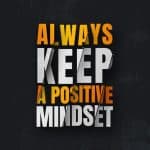Are you a recent graduate, a mid-career professional, or a career changer in Nigeria? Are you seeking to enhance your leadership potential, fit in the new industry, and ace interviews? Effective communication skills are vital to the success you hope to achieve. They are crucial for personal and professional career success, irrespective of your work industry.
This article will discuss 10 practical communication skills necessary for career success in Nigeria, provide actionable tips for developing the skills, and provide relatable examples from various workplaces.
But first,
Table of Contents
What are Effective Communication and Effective Communication Skills?
What does effective communication mean?
It is the ability to convey ideas, opinions, and information concisely and respectfully. It also involves actively listening to other people and understanding their messages.
Communication is effective when the true meaning of the information between the two parties involved is interpreted and understood well. It goes beyond just expressing yourself; it also includes understanding others. This makes the actual difference.
On the other hand, effective communication skills are the ingredients needed to ensure communication with other people is clear, concise, respectful, and understandable.
Needless to say, effective communication skills are one of the must-have soft skills for students and professionals.
10 Effective Communication Skills for Career Success
The following are effective communication skills in the workplace, but they are also applicable across several domains. For instance, there will be little difference if you consider effective communication skills in a relationship or marriage and other contexts.
-
Clarity and Concision
Clear and concise communication is essential for every organization’s growth. Every word you speak, irrespective of the means of communication, should add value to people on the receiving end, either in person, on the phone, or via email.
It would help to analyze your words, ensuring they are clear and concise, before saying them to avoid excessive talking and confusion for your audience. Expressing your ideas with this in mind will save time, avoid misunderstanding, and ensure everyone is on the same page.
Here are some tips for developing clarity and concision:
- Use Concise Language: You should employ an active voice and specific words that leave no room for misinterpretation.
- Focus on the Main Message: It is best to identify the key points you want to deliver and tailor your message accordingly before communicating.
- Structure Your Message Logically: Organise your thoughts before starting a conversation or discussion and present them in a precise sequence. To simplify, use a list, bullet points, or other problem-solving layouts.
Practical Example
Imagine a Sales Manager delegating tasks to a new team member.
Instead of saying, “Hey Flora, I need you to handle the Gentry client. It is a big one, so make sure everything goes well,” they can be more precise and more concise by saying, “Flora, I am delegating the Gentry client file to you.
They are interested in our new product line. Please schedule a meeting next week on Monday to discuss their needs and finalize the proposal by [Include date].
Now, Flora understands that the client is essential to the company and is clear about her responsibilities as its representative.
-
Active Listening
Sometimes called deep listening, active listening goes beyond being quiet while the other person is speaking. It means paying close attention to who you are communicating with by:
- Engaging them
- Rephrasing some of their sentences, and
- Asking clarifying questions.
International speaker, Crux Conception, simplified the meaning of active listening in a TEDx talk titled Active Listening in Time of Hostility. He said, “Active listening involves the listener to fully concentrate, understand, respond, and remember what is being said.”
In essence, active listening enables you to better understand what other people are saying and respond appropriately. It will build respect with your colleagues and increase understanding in the workplace.
Here are some tips to develop your active listening skills:
-
Give your full attention: Make eye contact occasionally, minimize distractions, and avoid interrupting while someone speaks. Deep listeners understand things in more detail.
-
Pay attention to non-verbal cues: Body language and tone of voice can reveal underlying emotions or hesitation.
-
Ask clarifying questions: Ask questions to ensure you understand the speaker’s message accurately.
Practical Example
Consider having an intern suggest a unique idea in a brainstorming session, but nobody says anything in response. The members’ silence could be due to insufficient information or clarity about the concept.
However, instead of giving no response, an actively listening team member can say, “That’s an exciting concept, Folusho. Can you tell us more about how you see it working?
Such a response will encourage the intern to present his idea with better illustrations and may help the team discover new ways to solve their problems. It will also help the intern and other team members, who may be less courageous, to boost their self-esteem and be more productive at work.
-
Confidence
Confidence is a key asset in every competitive business environment, including Nigeria. It shows that you are sure about your opinions and actions. Ideas presented with confidence are more likely to be responded to in the workplace, making you feel better about yourself and ultimately helping you perform better.
Here are some tips to build your confidence:
- Be prepared always: Thorough knowledge about a subject matter can build confidence and allow you to answer questions effectively.
- Focus on your strengths: Identify and leverage your communication skills during interactions.
- Embrace a positive attitude: Project optimism and enthusiasm in your voice and body language while interacting.
Practical Example: Imagine a confident salesperson pitching a newly launched product to a potential client. He can display confidence by clearly articulating the product’s benefits, data, and claims while answering questions about it with authority.
Such a salesperson is more likely to secure a sale than a colleague who is hesitant and needs more confidence.
Read Also: 8 Ways to Develop Effective Business Communication Skills
-
Non-Verbal Cues
Nonverbal cues complement your spoken words and can convey hidden or intended messages.
In his TEDx Talk, The Power of Nonverbal Communication, Joe Navarro, opined that nonverbals are everything that communicates but are not words. He stressed that communication happens through various nonverbal elements including:
- The way you sit
- The way you look at others.
- Things you attach to yourself, like your purse, pen, dress, fancy car, etc.
Hence, your gestures matter. Your body language, tone, facial expression, eye contact, etc., all color your message. They often say more than words.
Here are some tips for developing solid non-verbal cues:
- Use appropriate gestures: Hand gestures emphasize points but can be distracting when over-movements occur. You may want to avoid this.
- Project a positive posture: Sit straight, avoid slouching, and lean slightly to show engagement.
- Maintain good eye contact: It shows confidence, attentiveness, and respect.
In addition, always pay attention to other people’s nonverbal signals when speaking with or listening to them. Mastering this can strengthen your professional presence and build trust, which are supporting blocks for a successful career.
Become a member of Insight.ng’s community to get more rich and insightful resources at your fingertip
-
Friendliness
Friendly traits such as kindness, honesty, and approachability make engaging and connecting with others easier. Friendliness is valuable to develop a solid and effective communication skill. It will foster strong interpersonal relationships with potential employers, clients, and colleagues.
It is essential in both face-to-face and written communication. This skill can position you for potential mentorships and collaborative opportunities.
Here are some tips to cultivate friendliness in your communication:
- Engaging in seemingly small talks with colleagues and prospects
- Smile and use greetings: A warm smile and friendly approach sets a positive tone for interaction
- Be approachable: Again, maintain eye contact and open body language to show you are available for conversations.
Practical Example: You can practice friendliness by remembering small and thoughtful details about your past conversations with colleagues, teammates, and managers or personalize your emails; a quick “I hope you had a great weekend?” at the start of your email can make the recipient feel more appreciated.
-
Feedback
Feedback and constructive criticism are vital for personal and professional improvements. Giving and accepting feedback appropriately is a valuable asset and an essential workplace skill, as it can help you grow. Feedback can answer questions, provide solutions, and help strengthen projects and topics.
Here are some tips to develop your feedback skills:
- When receiving feedback, be an active listener and focus on the message being delivered rather than being defensive.
- When giving, use a friendly tone and focus on specific areas that need improvement rather than making generalizations.
-
Respect
People will be more open to communicating with you if you respect them and their opinions. Demonstrating respect for colleagues, supervisors, and interviewers (for an interviewee) fosters trust, collaboration, positivity, and stronger working relationships, which can position you for opportunities for mentorships and partnerships.
Key aspects of respect include:
- Knowing when to initiate communication and when to respond.
- Staying on topic.
- Using your time with others wisely.
Here are some tips to develop respect for others:
- Listen actively and avoid interruptions.
- Value the opinions of others even if they differ from yours.
- Use appropriate titles to show respect for positions.
-
Empathy
Empathy is one of the most critical aspects of emotional intelligence. It plays a significant role in communication and leads to better communication. Understanding the perspectives and feelings of others is crucial for building trust and ensuring support.
Here are some tips to develop empathy:
- See things from others’ perspectives and try to understand their thoughts, feelings, and motivation, even when you disagree with them.
- Listen attentively and respond with compassion.
If the person you are communicating with expresses anger or frustration, empathy can help you acknowledge and diffuse their emotions by listening to their concerns without judgment and giving constructive responses/feedback appropriately.
Read also: Digital Skills for Employability in Nigeria
-
Responsiveness
Responsiveness demonstrates professionalism and keeps projects moving forward efficiently. Timely responses show you are attentive, engaged, and value others’ work.
Whether replying to an email or returning a phone call, people often see fast communicators as more effective than those slow to respond. With digital communication the order of the day in every workplace, prompt responses can demonstrate reliability.
Here are some tips to develop your responsiveness:
- Acknowledge receipts of messages: Even if you can’t provide a complete response immediately, let the sender know that you have received their message and will respond as soon as you can.
- Prioritize effectively: Manage your time to ensure timely responses to more critical messages, especially those impacting overall work in a team or organization.
- Set clear expectations: You can communicate your typical response time for different communication channels so everyone is aware.
Subscribe to our newsletters to get timely tips and updates to boost your career success
-
Communicating through the Right Medium
Using the wrong platform can lead to delays, misunderstandings, and missed information. Knowing what channel is best for your communication to be passed effectively is essential. Some serious conversations are better in person, while others are better through emails, phone calls, and other channels.
Here are some tips for choosing a suitable communication medium:
- Consider Urgency and Importance: Urgent information can be conveyed through phone calls and in-person meetings, while less time-sensitive ones may be done through emails and other messaging apps.
- Consider your audience: Email or collaborative platforms may be suitable for communication with a large team, while confidential information may be best shared directly with recipients.
People will appreciate and be more likely to respond faster and positively to thoughtful means of communication.
Practical Example: Communicating with a potential work employer may be better with a formal email or a phone call. While in the workplace, complex information may be better conveyed in person or via video conferences than email.
Pro Tip: Developing your oral and written communication skills is also essential for effective communication.
Conclusion
Effective communication is at the heart of career success in Nigeria’s vibrant business landscape, and mastering effective communication skills can help you scale your career ladder faster.
The skills explored in this article will help you collaborate effectively, handle various work environments, and leave a lasting impression.
Remember, this is a continuous learning process. Take the initiative to develop these skills, enrich your style, seek feedback, give it time to master them, and watch your professional life thrive in a competitive business world.
Edited by Akinola Dare T.
About Author
She’s passionate about words, and their usage to make utmost meaning to every audience. She’s an author of several blog posts and articles in the Personal Development, Business, Health, and Travel fields on Medium and a devoted lover of God.
Latest entries
 CareerMay 3, 202410 Effective Communication Skills for Career Success in Nigeria
CareerMay 3, 202410 Effective Communication Skills for Career Success in Nigeria
 Insight AfricaDecember 1, 2023Top 10 Multinational Companies That Have Their Roots in Africa
Insight AfricaDecember 1, 2023Top 10 Multinational Companies That Have Their Roots in Africa Business InsightsDecember 1, 2023A Guide To Choosing Your Company Logo
Business InsightsDecember 1, 2023A Guide To Choosing Your Company Logo

